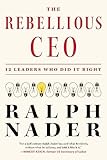Over the last few years many Americans have come to rue the decisions of the Bush administration that lead to the war in Iraq. Much of the distain for the conflict involves the lies that were told and the incompetent execution of the war effort. While the tragedy that is Iraq has its own as yet unknown costs in lives, treasure, and the good name of the country, there is another war that this administration is fighting against schoolchildren here at home. It is marked by the same disdain for honesty and integrity that Bush brought to foreign policy. It is called No Child Left Behind. What is shocking is that both efforts share so many trademarks of what this administration calls policy.
Both the war in Iraq and NCLB are based on a ‘big lie.’ In Iraq it was WMD and the linking of Iraq to the terrible events of 9-11. Even long after these claims were exposed, the administration continues to repeat and amplify them. The cause was wrapped in the patriotic rhetoric of “Operation Desert Freedom” and talk of liberation and political freedom for Iraq. The outcome, of course, has been much different. In the case of NCLB the arguments were based on the ‘Texas miracle,’ long since discredited, and the rhetoric of ‘failing’ schools and ‘accountability.’ As with ‘democracy’ in Iraq, these sound like laudable goals. But just as ‘mission accomplished’ turned into quagmire, the quest for accountability has lead not to better and more accurate assessment of student learning and the resources to improve, but the scapegoating of public education and the implementation of a testing regime more similar to Halliburton’s managing of the Iraq oil fields than a model for sustainable educational practice. The reliance on the textbook and testing industry to “guide” education also represents the same wasting of resources we have seen in Iraq. Instead of spending on programs that have proven to help students succeed, we have ‘invested’ in more tests. This is money, like the lost billions in Iraq, which will never lead to a solution to the underlying problem.
In both cases, the exposure of the underlying error has done nothing to slow down the right wing noise machine or offer cause for reflection. The stalemate over the policy in Iraq is clear, but people not familiar with NCLB are still being mislead by politicians of both parties (yet another similarity) about the consequences of the current assessment schemes in American schools. There can be no accountability if the measurements are not accurate and the goals are not realistic, any more than there can be ‘victory’ in another country’s civil war. In both cases, this is policy in search of a reality to validate it and not a policy based on reality. The standardized tests that make up NCLB have been widely discredited as single point measurements of student’s knowledge or ability. They replicate existing socio-economic patterns, and most debilitating over the long haul, they rob teachers of the formative feedback to inform their teaching and improve their schools.
NCLB represents the same simplistic policy movements made in Iraq. Instead of heading expert warnings about how complex and difficult the project of assessing learning and subsequent school reform might be, the Bush administration pushed on with a policy long on bravado and short on money, thoughtful strategy, and achievable goals. Just as in Iraq, when the policy proved ineffective and detrimental the Bush administration ‘stayed the course’ and continued, with mounting consequences. Both of these policy initiatives mark the cost of letting poorly informed ideologues run amuck. It was easy to take Iraq apart, but who really believes we will ever be able to put it back together again? It was easy (and justifiable) to call for accountability and reform in American schools, but the real impact of NCLB has been the destruction of real learning at precisely the moment when schools and teachers need more flexibility, more creativity, and more resources. To complete the cycle of comparison, both the war and NCLB ignored the input of seasoned and competent experts for the ideological incompetence of appointees whose only claim to their office was their willingness to follow George W. Bush off a cliff. There were plenty of people in the diplomatic corps that warned about the eventual calamity in Iraq, and there were and are experts in the educational field who warned about the simple minded and reductive approach of the Margaret Spellings lead education initiatives. One of the administrative traits evident in both disasters is the unwillingness of this administration to listen to anyone or anything not in synch with the predetermined ideological positions taken by Bush.
The schools in America may look the same from the outside, but like the prospects for civil society in Iraq have been damaged by Bush’s Iraq policy, they have been profoundly damaged by the short-sighted goals of NCLB. A generation of young teachers has lost the initiative to teach creatively and use local classroom research to improve their students’ learning by the ‘one-size-fits-all’ approach taken by this administration’s education policy. Students leaving high school are less and less able to solve problems and read critically (which is the real lesson we should be taking from the research showing declining test scores for American students in international comparisons) because they and their teachers are forced into complying with NCLB. This damage may be close to being irreversible for this generation of students and teachers.
Finally, both Bush’s Iraq and educational policy are marked by a less than honest rationale. NCLB is no more about improving schools than the Iraq War is about WMD. In both cases the policy advances long held ideologies of Republican strategists. The neo-cons in the Bush administration were going to war with Iraq whether there were WMDs or not. The motivation behind NCLB is the culmination of over 25 years of right wing attacks on public education. If the goal were really to level the playing field of educational opportunity, the research was there to point the way. We would have invested in smaller class sizes and developmental pre-school programs to prepare the students who are at risk. Instead we have cut those programs and invested in a testing regime that ensures that the economic inequities of this society are replicated in its educational system. As was the case in Iraq, Democrats who should know better were bullied into submission and abandoned the very segment of society they claim to represent.
It is time for opponents of NCLB to draw the connections between the war on Iraq and the war on education. This administration doesn’t care about the Constitution and it doesn’t care about education. It is incapable of formulating policy that is competent, fair, or effective. It is time to give schools back to the people who work in them and care about them, to fund the initiatives that really could make a difference and to rescue educational policy from a group that clearly could have used a better education. Just as the solution for Iraq is held by Iraqis, the solution to the future of American education is held by teachers and parents working to implement what we know would work.
At some time in the future America will leave Iraq and an accounting of the horrible costs for this protracted failure will begin. The cost being paid in this country for the equally disastrous policies that constitute NCLB will be harder to calculate, and it may already be too late to save a generation being tested into oblivion.










